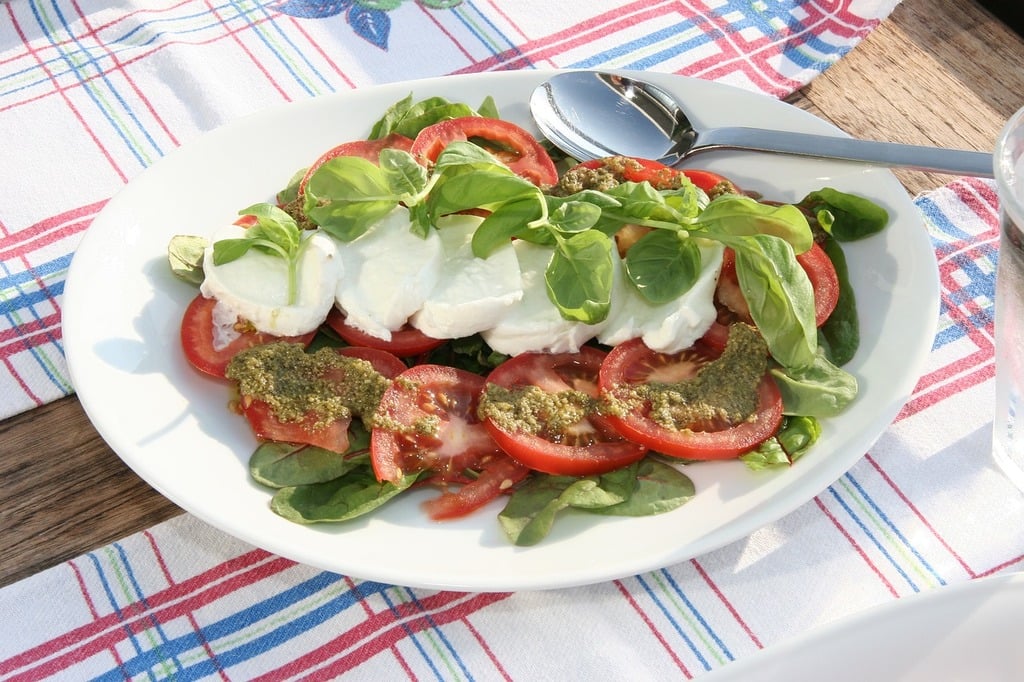Tomatoes, mozzarella, basil. That’s all it takes. No complicated technique, no lengthy preparation – just the right ingredients at the right moment!
Insalata Caprese, or Caprese salad, is one of Italy’s simplest dishes, and yet somehow also one of its most revered. When the summer sun is high and the produce is at its peak, there are few combinations more satisfying – or more symbolic – than this timeless trio.
The name Caprese means ‘of Capri’ – the sun-drenched island in the Bay of Naples known for its bougainvillaea-covered villas, turquoise sea and long, languid meals. It’s here, in the early 20th century, that the salad is believed to have first appeared – possibly as a patriotic gesture. The red, white and green of the ingredients mirror the Italian flag, and many see Insalata Caprese as a quiet celebration of national pride as well as flavour.
While the origins are modest, the salad has since become iconic – a fixture on menus from Rome to Rio. Its charm lies in its refusal to be anything other than what it is. A true Caprese is not dressed heavily, nor made in advance. The tomatoes should be ripe but not over-soft, their sweetness balanced by a slight acidity. The mozzarella should be creamy and mild. The basil must be fresh, torn by hand at the last moment. A drizzle of olive oil and a scatter of sea salt complete the dish.
In Cyprus, where tomatoes reach their peak in July and basil grows in every field and garden, Caprese is a natural fit. While buffalo mozzarella is imported, creamy local alternatives are widely available. The island’s own olive oil – golden, grassy and peppery – brings its own character to the dish, and many Cypriot cooks add a sprinkle of oregano or a few olives for a regional twist.
Caprese salad is more than a side dish – it’s a lesson in restraint, in the beauty of letting ingredients speak for themselves. It’s also deeply tied to the rhythm of summer – a dish that needs no stove, no heat and no rush. Served on a shaded terrace, with crusty bread and a cool breeze, it captures the season in every bite.
To eat Caprese is to honour simplicity – and to be reminded that the best meals are often the ones where we do the least, and nature does the rest.






Click here to change your cookie preferences